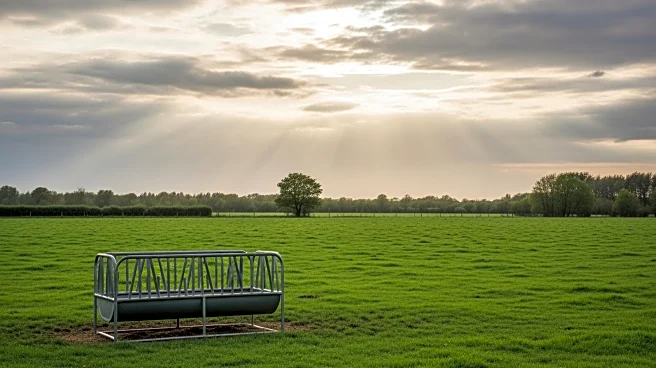What's Happening?
Denmark has implemented a climate policy aimed at reducing greenhouse gas emissions from cows, which has reportedly led to cows collapsing and being euthanized. The policy involves financing large dairy
farms to adopt synthetic additives in cow feed, specifically a compound called Bovaer, intended to reduce methane emissions. However, farmers have raised concerns as cows have started producing less milk, collapsing, and in some cases, becoming so ill that euthanasia is necessary. The policy is part of Denmark's aggressive climate goals, which include achieving climate neutrality by 2050 and reducing emissions by 70% by 2030 compared to 1990 levels.
Why It's Important?
The situation in Denmark highlights the challenges and potential unintended consequences of aggressive climate policies. While the goal is to reduce methane emissions, the health decline in cows raises ethical and economic concerns for farmers. This development could impact the dairy industry, leading to financial strain and potential backlash against climate policies perceived as harmful to livestock. The broader significance lies in balancing environmental goals with the welfare of animals and the economic viability of farming practices.
What's Next?
Farmers and stakeholders may push for a review of the policy and the additives used in cow feed. There could be calls for more research into the effects of Bovaer and similar compounds on livestock health. Additionally, Denmark might face pressure to adjust its climate strategies to prevent further harm to the dairy industry and ensure sustainable practices that do not compromise animal welfare.
Beyond the Headlines
This situation may spark a broader debate on the ethical implications of climate policies that affect animal health. It could lead to discussions on the need for comprehensive assessments of environmental strategies, considering both ecological benefits and potential risks to agriculture and animal welfare. The long-term impact may involve shifts in policy-making to incorporate more holistic approaches to sustainability.









